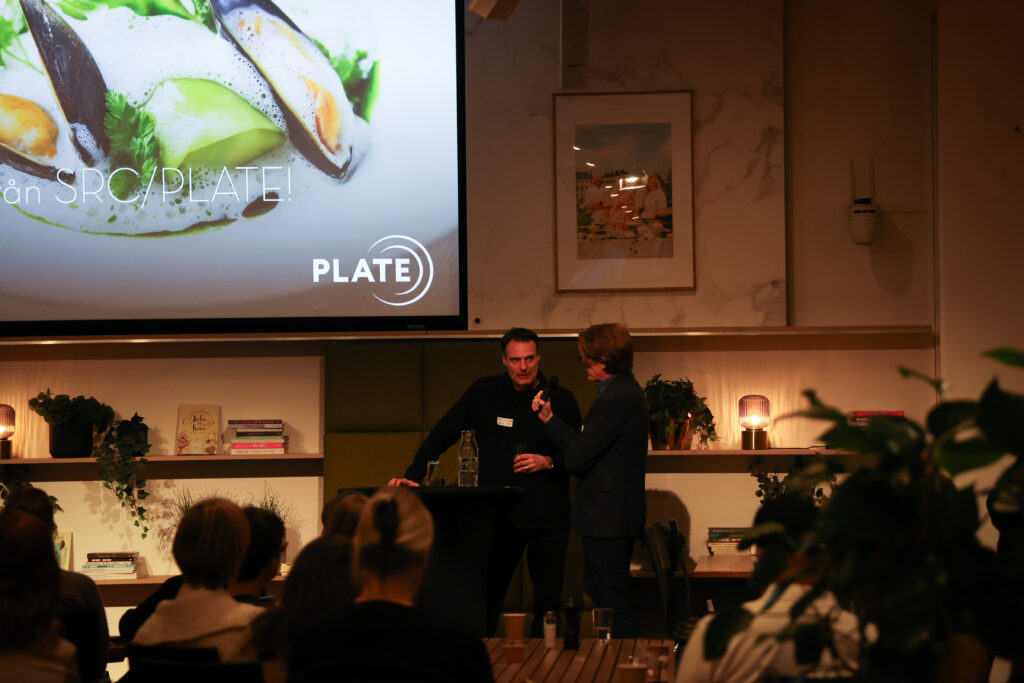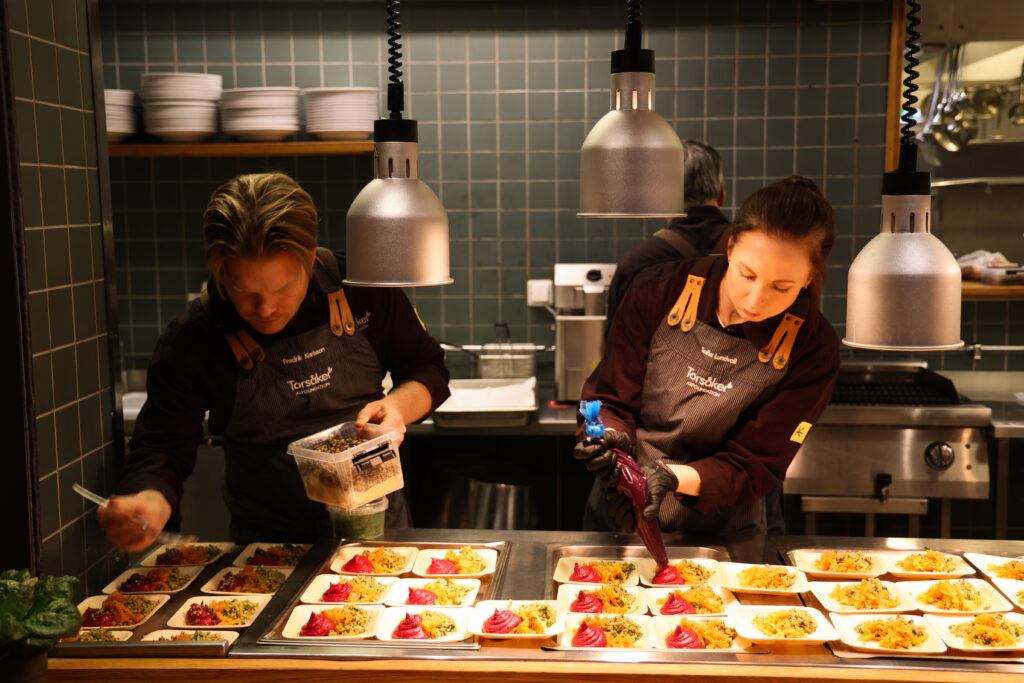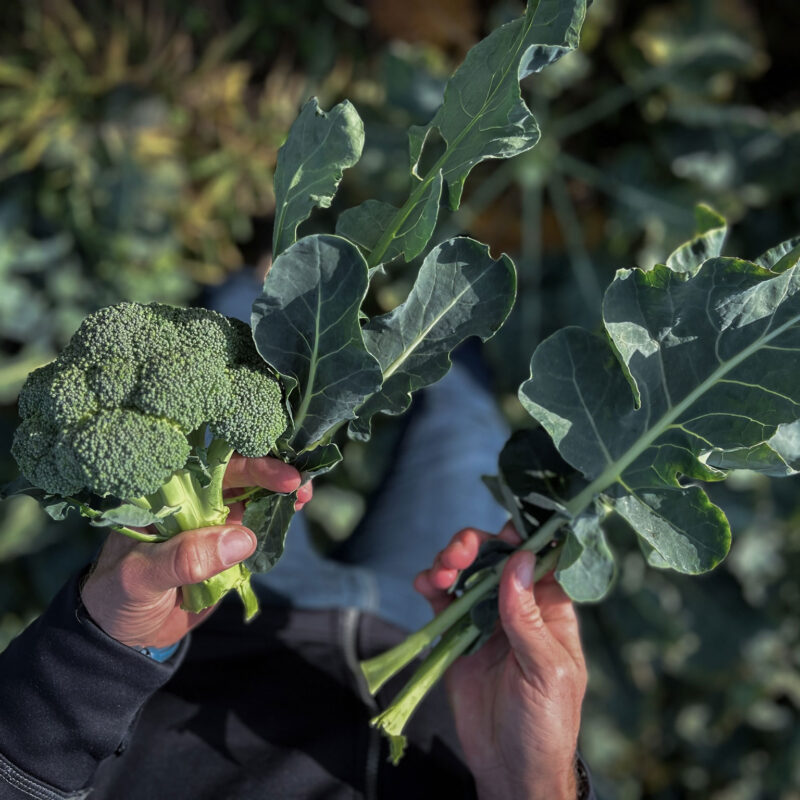PLATE and PLENTY – New Centers to Strengthen Sweden’s Food System
2025.02.18
The Swedish research council Formas is funding five new research centers with 300 million SEK to enhance food security, sustainability, and competitiveness. Axfoundation is a partner in two of them: PLATE and PLENTY. These centers will bring together industry, researchers, and public actors to develop solutions that strengthen food resilience and circularity. Axfoundation will do the practical innovation work at Torsåker Farm, Axfoundation’s test and development center.
Axfoundation is already involved in Blå Mat – Center for the Future of Sustainable Seafood, one of three previously established Formas-funded food centers. In February 2025, these were joined by five new centers, with Axfoundation taking a key role in PLATE – a Swedish Research Center for Resilient Meals and PLENTY – Centre for Symbiotic and Circular Food Provisioning.
PLATE – Developing Resilient Meals
The PLATE center focuses on sustainable, healthy, and cost-effective meals while enhancing food preparedness and resilience. PLATE is based at Stockholm Resilience Centre in collaboration with researchers from the Swedish University of Agricultural Sciences (SLU), Kungliga Tekniska Högskolan (KTH), and the Beijer Institute at the Royal Swedish Academy of Sciences.
The overarching vision is: “A strong meal sector that plays a key role in a resilient, sustainable, and competitive Sweden for everyone’s well-being.”
– We can achieve that vision by scaling up good practices. The porridge at the 2024 Nobel Prize Banquet is a great example, it influences our values regarding what we find interesting to eat, says Line Gordon, director of the Stockholm Resilience Centre.
The hydrothermally treated grains served at the Nobel Prize Banquet come from the Mineral Shift project, led by Axfoundation in collaboration with partners including Hidden in Grains, the innovator behind the concept, and chef Jessie Sommarström, who transformed them into porridge.
Axfoundation’s role in PLATE is to practically develop and test meals and ingredients at Torsåker Farm in collaboration with other partners. PLATE is funded with 60 million SEK over four years.
PLATE is coordinated by Stockholm Resilience Centre. Participating partners include Boden municipality, Uppsala municipality, Stockholm City, Gävleborg region, The Swedish Food Agency, Compass Group, MAX Burgers, Martin & Servera, TV4/Köket.se, WWF, Reformaten, Eldrimner, LiveGreen, and Axfoundation.

Marcus Lundstedt, Head of Communications at the Stockholm Resilience Centre, and Fredrik Larsson, Business Manager at TV4/Köket.se, introduced their organizations at the PLATE kick-off event in February 2025.

Axfoundation served the food of the future, featuring ingredients such as broccoli leaves, blood, and "Toast Skagen" made with mussels.
PLENTY – Strengthening Food Security Through Circularity
PLENTY is designed as an innovative research center with the goal of strengthening Sweden’s food supply and promoting a symbiotic and circular food ecosystem. The center aims to contribute to a sustainable transition, competitiveness, and crisis preparedness in the Swedish food system.
PLENTY’s primary goal is to map and optimize the use of side streams and residual flows in the Swedish food chain to reduce dependence on imports and increase domestic food production. This is crucial from multiple perspectives.
All forms of food production put pressure on ecosystems. Agriculture today accounts for one-third of global greenhouse gas emissions and consumes 70% of all freshwater. The food sector is responsible for 70% of biodiversity loss on land, and nearly 90% of the world’s marine fish stocks are either fully exploited, overexploited, or depleted.
– The fact that one-third of all food produced never reaches anyone’s plate is the ultimate proof of a failing system. We must therefore transition from a linear food system to a circular one, says Madeleine Linins Mörner, Program Director at Future Food.
Transforming material flows that are currently considered waste or lost into valuable assets can create new business opportunities. In circular food systems, for example, food waste and excessive nutrient use are minimized, and if residual flows cannot be avoided, they are utilized in the most sustainable way possible.
PLENTY is coordinated by the Royal Institute of Technology (KTH). Participating partners include the Stockholm School of Economics, the Swedish University of Agricultural Sciences (SLU), IVL Swedish Environmental Research Institute, Örebro University, Arla Foods, ICA Sweden, Orkla Foods Sweden, Stockholm Vatten och Avfall, and Axfoundation.
Formas is a government research council for sustainable development. Formas’ initiative Centers for Increased Preparedness and Competitiveness in the Food System aims to support high-quality research that meets both the needs of the food sector and society. These new research centers will accelerate Sweden’s transition toward a more resilient and sustainable food system over the next four years.
Ongoing updates on activities and results from Blå Mat, PLATE, and PLENTY – where Axfoundation is involved – will be shared throughout the programs.




























































